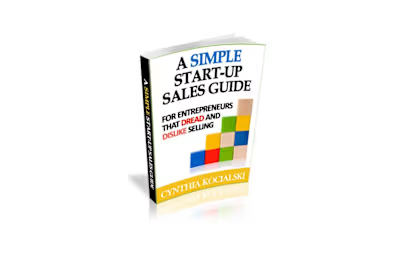Entrepreneur Profile
An Interview with Josh MacDonald, Teen Entrepreneur
Meet Josh MacDonald. He is a young high school entrepreneur. Josh started learning about business by working in the family restaurant business. At age fourteen, Josh started an online business because as he puts it, “no one can tell your age in the online world.” At age sixteen, he had one of his proudest accomplishments, he sold his first $100,000 of software. He is the creator of Keyword Scout and is now the founder of Elite Web Software, a company with all his software creations and brands.
Why become a teen entrepreneur at all? What motivated you? Most teens just want to go to high school and hang out with their friends, starting a business doesn't cross their minds.
My motive changes from day to day. Sometimes it’s because I want to buy things that my parents won’t buy me, other times entrepreneurship is a way for me to make up for other things my life lacks. In high school, most teens don’t think about starting a business because they don’t think they can until after they graduate. I think it may be some sort of side affect or notion that we receive from attending school. Going to university for business doesn’t make you an entrepreneur, it simply gives you a couple of resources, the biggest being networking and contacts. That’s a big misconception that I have to explain almost on a daily basis. You’re not going to be instantly rich if you get into business school.
What was your first start-up? Can you tell me a little about it?
My first start-up was my niche creation service. I made websites for the sole purpose of advertisement placement, Adsense or Amazon ads specifically. The process was almost automated. The only part I had to do was research the niche for the website.
How did you get the idea for the company? What was that spark of inspiration?
There were keyword tools that would help with research but nothing that did everything I wanted, and that’s where the idea of my first big start-up came from. I created a tool that helped me automate my previous business. At first, it was just for my team, but then as friends found out about it, I saw there was a demand. So, I started to sell it publicly and the rest is history.
What were the first steps in going from the idea to starting the company?
After finding the idea, I had to find an affordable, yet highly skilled programmer. On average, I hire about 1 in 40 interviewed programmers. It takes a really talented programmer to maintain my advanced creation. After finishing the program, it was time to buy sales threads on SEO and marketing forums. It’s a tedious process, but once approved, some forums can bring steady sales.
What have you learned so far from the experience of beginning a start-up that you didn’t know before?
I didn’t know how hard or how easy it would be, or the amount of respect that you get after successfully launching a company. I also didn’t know that a massive chunk of a business’s profit is given to the government. It gave me a bit more respect for legitimate millionaires. I didn’t realize how hard cold calling was. My knowledge ranges across so many topics because I don’t concentrate on one start-up idea -- and I won’t unless it’s a billion-dollar market. I also didn’t expect teachers to get jealous of my success.
You said your teachers were jealous of success. Did you get treated differently in school? My daughter aspires to be an elite athlete, and her teachers are always commenting that if she just quit sports, she could dedicate more time to her studies. The school system is non-supportive of serious activities that take away from academics. Do you feel the teachers are supportive or unsupportive of your business?
Yes, in many ways, my school life is completely different now that I’m an entrepreneur. I’ll talk about something I’ve never talked about in an interview -- what I choose to wear. I no longer wear graphic t-shirts or Hollister hoodies, but instead Ralph Lauren and Lacoste collared polos. Some may think I’m crazy but I believe in anyone becoming anyone. In ten, twenty, or even thirty years, I want people to remember me as a professional -- a serious businessman, not a punk. Outside of school, I continue to dress in a professional manner because you never know who you might run into on the streets. I need to make a good impression with everyone. Also, I carry business cards with me, so I’m always ready for any tech business opportunity.
As for teachers not being supportive, I completely agree. I have two teachers who have been strong supporters of what I do, and the rest, not so much. One is my math teacher in high school and the other was my eighth grade teacher. Both were always very supportive of anything I did. Sure, in grade 8, I wasn’t quite launching impressive products with a dozen employees yet, but I was still a computer geek if you will. He enjoyed that I was able to fix almost any technical problem, from helping other students with simple video editing for a school project to setting up the sound system for a school dance. He truly made me believe that I could do anything with computers. At this stage, I was about a year into learning about online business and internet marketing.
After grade 8, I moved to high school, where I met my supportive math teacher in grade 9 and then was taught again by him in grade 10. He didn’t know me too well, but he knew my family. I know the word gets around about people, so I’m not sure where he started to realize I was a programmer, and then even more, I employed programmers. However, last month I asked him to write a recommendation for Harvard, Cornell, UPenn, UMich, and BU, as I knew he had a handle on what I did outside of school. I had to explain to him what I do and a few of my business beliefs and strategies, making sure to clear up everything. He’s now more curious than ever. So to summarize, about 70% of my teachers know I’m good with computers and about 50% know I run a business online. Overall, 20% are supportive, 50% are jealous and nosy, and the remaining 30% are confused. I also want to say there have been a couple of other teachers who support me, but those two motivated me beyond belief and stood above all.
What was your biggest AHA moment with the new business and what was your biggest mistake?
I don’t have one mistake that stands out. If I could go back, the only thing I would change would be who I did and did not network with. The people you meet on your way up are important.
What would be a specific tip for entrepreneurs just thinking about starting an online company?
Make sure you have a lot of time on your hands and don’t get discouraged if you’re not successful within the first twelve months.
Let's fast forward ten years in the future. What is Josh MacDonald doing? What has he accomplished in those years?
Well, it depends on who you ask ... my mom or I? If you ask my mom, she’ll tell you that hopefully, I’ll have my degree in computer science from a reputable university, and I am working somewhere I enjoy, which she knows is Silicon Valley. My story is similar except I may go for my MBA, but only if it’s at a truly remarkable university. If not, I’ll probably be working on my own projects straight out of college. I’d like gorgeous offices, one in Canada and one in California. On the other hand, I wouldn’t mind working with Mark Zuckerberg.
I can see myself having a net worth of a million by the age of twenty. I can’t tell you I will, because I obviously don’t know that for a fact, but if I stay on track, there’s no doubt that it is certainly feasible. However, right now, money isn’t a goal. My goal is to create something different.
Like this project
Posted May 3, 2024
An interview with a teen entrepreneur that maintains the voice of a teenager
Likes
0
Views
0



